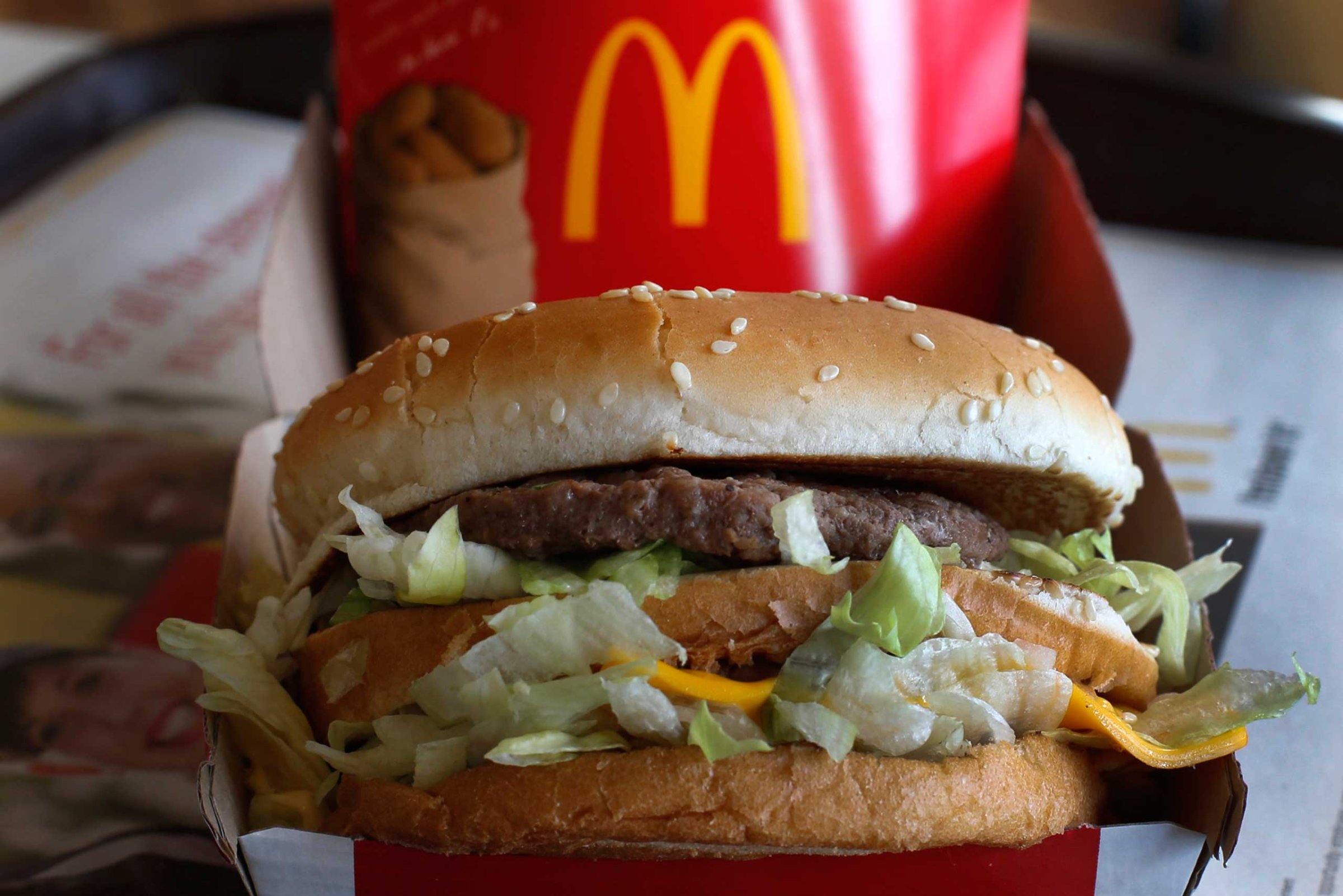
The fast-food industry was an especially vocal critic of minimum-wage legislation, but voters essentially drowned them out last week. New laws in Alaska, Arkansas, Nebraska, and South Dakota will raise their minimum wages to between $8.50 and $9.75 over the next few years. (The federal minimum wage is $7.25.)
People made dire predictions about the fate of your favorite drive-thru indulgences. Last year, an article in Bloomberg Businessweek predicted that the price of a Big Mac would go up by a dollar if the minimum wage was raised to $15 an hour. (None of the state-level new minimum wage laws call for increasing it that much, but $15 is the number union-backed labor groups have been campaigning for.)
“Our concern remains that there is no way to raise the minimum wage without raising the cost,” Gwyneth Borden, director of the Golden Gate Restaurant Association, told the San Francisco Business Journal immediately after the election. San Franciscans passed legislation to raise their minimum wage to $15 on Election Day.
Now that the dust has settled, fast-food publication QSRWeb.com steps in and explores how its industry will cope. The short version: It will survive, and while you might see higher prices here and there, there won’t be any huge price spikes for which you can blame higher minimum wages.
“The customer will have to pay a few pennies more for their normal order,” Gary Wilkerson, president of a Sonic franchise, tells QSRWeb. “But we’re going to try to do everything we can in our business to try and prevent that.”
Restaurant analysts agree. “I think the customer’s not going to see much in the way of price increases,” says Bob Goldin, executive vice president of restaurant research company Technomic. “I think they’ll do things to counterbalance the need to take price [like] reducing portion size, using less expensive ingredients where they can.”
The increase in beef prices is a bigger issue, says Paul Pendola, manager of Menu Insights at market research firm Mintel. “We’ll see less beef, more less-expensive proteins and protein alternatives,” he predicts.
What else can diners expect? Skimpier combo meals, Pendola says. Some restaurants are already experimenting with leaving beverages out of combo pricing. Regular but low-profit menu items will become limited-time offerings or could disappear entirely.
Descriptions could get vaguer, Pendola says. For instance, “beef meatball” could become just “meatball,” which gives operators more flexibility to swap in pork or some other cheaper meat. They could cut back on the amount of bacon in certain dishes, or make it an optional add-on, he says.
What customers are unlikely to see are big price increases in fast food chains’ flagship products, Goldin says. They want to avoid the bad press, so higher prices are more likely to creep onto the periphery of the menu: fries, sodas and higher-end or specialty offerings could cost more.
Pendola says fast-food menu prices could rise, but it won’t be across the board or across the country, assuming the current piecemeal pattern of minimum wage increases continues. “Pricing will become more variable by state and city as brands will be forced to adjust to local conditions,” he says.
So, drive-thru splurges will survive mostly unscathed, but diners at nicer restaurants might find an unpleasant surprise when they get their bill, says Bonnie Riggs, restaurant industry analyst for market research firm The NPD Group.
“My opinion is that we’re going to be seeing an across the board price increase for many and more full service operators adding a service charge to the check,” she says. Obviously, diners might find this hard to swallow. “They do not feel that they should be paying extra to help meet restaurant operators meet their operating expenses,” Riggs says.
More Must-Reads from TIME
- Cybersecurity Experts Are Sounding the Alarm on DOGE
- Meet the 2025 Women of the Year
- The Harsh Truth About Disability Inclusion
- Why Do More Young Adults Have Cancer?
- Colman Domingo Leads With Radical Love
- How to Get Better at Doing Things Alone
- Michelle Zauner Stares Down the Darkness
Contact us at letters@time.com